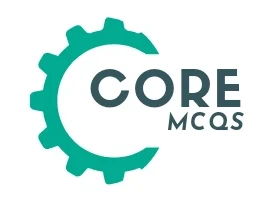12th class (Fsc) computer unit 13 MCQs
26. Which of the following is not a valid function declaration?
a. Int ave 3(int, int, int);
b. Int ave3(int, int b, int c)
c. Int ave3(int a1, int a2, int a3);
d. Int 3ave(int a, int b, int c)
27. Which of the following is true for return statement in a function?
a. It cannot return any value
b. It can return one value only
c. It cannot be used in a function
d. It can return integer value only
28. Which of the following looks for the prototypes of functions used in a program?
a. Compiler
b. Linker
c. Parser
d. Loader
29. Which of the following is true about a function call?
a. Transfers control to the main function
b. Stops the execution of the program
c. Resumes the execution of the program
d. Transfers control to the called function
30. Memory is allocated to a local variable at the time of its:
a. Definition
b. Declaration
c. First reference
d. Destruction
31. Local variable are also called:
a. Register variable
b. Automatic variable
c. Run time variable
d. Static variable
32. The scope of a variable refers to its:
a. Accessibility
b. Length
c. Data type
d. Name
33. Memory allocated to a local variable at the time of its:
a. Definition
b. Declaration
c. First reference
d. Destruction
34. Local variables are also called:
a. Register variable
b. Automatic variable
c. Run time variable
d. Static variable
35. The scope of variable refers to its:
a. Accessibility
b. Length
c. Data type
d. Name
36. A variable declared inside a function is known as:
a. Local variable
b. Global variable
c. Automatic variable
d. Both A & C
37. Global variables are created in:
a. Hard Disk
b. RAM
c. Cache
d. ROM
38. A variable declaration outside any function is known as:
a. External variable
b. Global variable
c. Static
d. Local variable
39. What is the variable name that is used by a function to receive passed values?
a. Expression
b. Function
c. Constant
d. Parameter
40. The name of actual and formed parameters:
a. Must be different
b. May or may not be same
c. Must be in lowercase
d. Must be same
41. Formal arguments are also called:
a. Original arguments
b. Actual arguments
c. Referenced arguments
d. Dummy arguments
42. The process of sending an argument to a function is called:
a. Delivering
b. Sending
c. Passing
d. Filtering
Click here to go directly on chapter no.14
